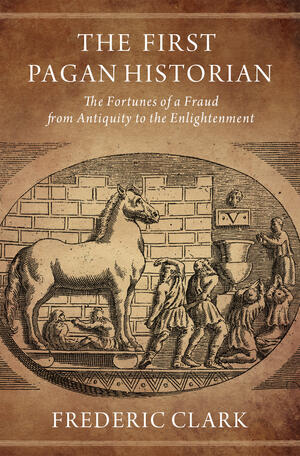Premodern Mediterranean Seminar
The Premodern Mediterranean Seminar brings together students and faculty from across the humanities, social sciences, and even the natural sciences to discuss a wide range of topics and themes in a workshop setting. In previous years, for instance, we have considered how the movement of people, products, culture, technology, and ideas moved through the region; how economic practices inform identity; how to formulate and understand relationships between people of different faiths (i.e., Christians, Muslims, and Jews); and how new developments in the natural sciences and recent technological innovations have offered interdisciplinary research teams the opportunities to develop new evidentiary bases for the study of the period. We offer a handful of workshops annually. They are led by prominent scholars from North America and beyond. Although the precise format of the seminar ranges from scholar to scholar. Some pre-circulate drafts of work in progress. Others share samples of the materials on which they are working. And sometimes they make more formal presentations. Whatever the format, however, we dedicate significant time to discussion of historical and historiographical implications of their work in progress and typically reflect on its methodological or theoretical underpinnings. In short, these workshops and the discussions they generate serve well both specialists in the particular fields of our visiting scholars and those with no expertise in their fields.
Premodern Mediterranean co-organizers: Christelle Fischer-Bovet, Jason Glenn and Stefano Rebeggiani
Disasters in Late Antiquity: Extraordinary and Everyday
Kristina Sessa, Department of History, The Ohio State University)
Tuesday April 16, 2024
Glorya Kaufman International Dance Center (KDC) 235
As in other times and places, the people of the late Roman Empire (ca. 250-700 CE) experienced their share of sudden, violent, and destructive environmental disasters – phenomena such as earthquakes, tsunamis, epidemics, and volcanic eruptions – alongside longer-term climatic shifts that in some areas generated deleterious weather conditions, leading to periods of flooding and/or drought. And while the Romans were no strangers to warfare, inhabitants of the late Empire arguably experienced the catastrophic impacts of organized military action on a scale unknown to many previous generations. Many scholars use these and similar observations to fashion declinist narratives about Late Antiquity, which present a range of disasters (e.g., warfare, climate change, disease) as the “causes” of the empire’s collapse. This presentation offers a wholly different set of interpretations of Late Antiquity’s numerous natural and anthropogenic disasters. Rather than constructing a single grand narrative that explains what disasters “did” to the late Roman Empire, I present readings that center the perspectives of the late Romans who experienced them along with the many different environmental contexts in which they took place. Drawing on a range of evidence (textual, archaeological, and natural proxy data), my talk will present some provisional answers the following questions: What did disasters mean to late Romans, and how did they typically talk about them? How did large-scale, materially destructive events differentially impact communities? And perhaps most importantly: did they, and thus should we, distinguish between extraordinary late ancient disasters and those that were more everyday?
Info for Image: Miniature by Piéart dou Tielt in Gilles li Muisis, Antiquitates Flandriae: depiction of the plague at Tournai in 1349
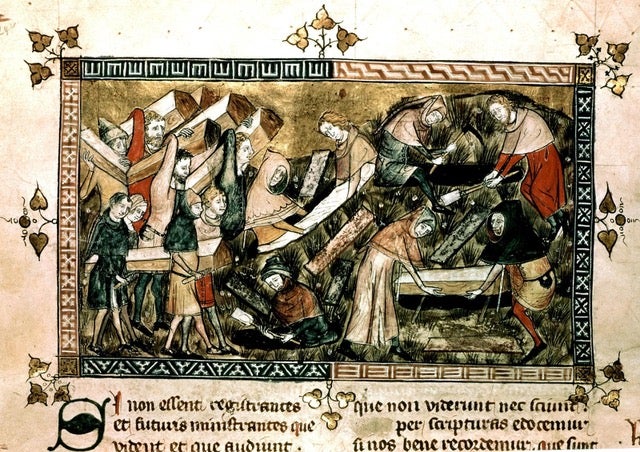
The shadow of the ‘people’ (Italy, mid-14th c.)
Igor Mineo (University of Palermo)
Thursday March 7, 2024 at 5:00 p.m
During the late Middle Ages in Italy and Europe, the term “people” (populus / popolo) was of great importance in the political and social lexicon, a fundamental word in both the common and the learned language, and had been for a long time. In Italy in particular, certain political events in the first half of the 14th century demonstrate not only the richness of polysemy (which we have to take for granted in such a case), but also the uncertainties and fluctuations in the practical use of words such as this, and of all those (synonyms, but not only) that are connected to them, in specific contexts. Which contexts and cases are being referred to? ‘People’ in Italian cities during this period, specifically in the north-central part of the peninsula known as the ‘regnum italicum’, often referred to an organized party, an association, and even an institution capable of seizing power. This fact, which greatly impressed contemporaries and later historians, coexisted with other representations and functions of ‘people’ in the same cities and practices. How does this complex constellation operate? How are the boundaries between ‘people’ and ‘non-people’ defined and understood? I will focus on two fundamental cities, Rome and Florence, and exploit the views of Marsilio da Padova and Bartolo da Sassoferrato, particularly perceptive observers of their time.
E. Igor Mineo is a professor of medieval history at the University of Palermo. He is the editor of the journal “Storica” (Viella editore) and serves on the editorial boards of ‘Storia del pensiero politico’ and ‘Critica Marxista’. His main areas of interest are the social and institutional history of the late Middle Ages, especially aristocracy and social stratification, and ideologies and political languages from the late Middle Ages to the early modern period. His works on this subject include: State, orders, and social distinction, in A. Gamberini – I. Lazzarini (ed.), The Italian Renaissance State, Cambridge University Press, Cambridge, 2012, pp. 323-344; Le jeu du peuple avec le temps en Italie au milieu du XIVe siècle, in C. Moatti, M. Riot-Sarcey (ed.), Pourquoi se référer au passé ?, Editions de l’Atelier, Paris 2018, pp. 39-58 ; Le parti e il tutto. La memoria dei Ciompi e la semantica del popolo, in Al di là del Repubblicanesimo. Modernità politica e origini dello Stato, a cura di G. G. Cappelli, con la collaborazione di G.De Vita, Napoli, Unior Press 2020, pp. 107-130.

Kate Birney (Wesleyan University) – Wednesday February 21, 12:30pm-2pm – THH 309K
The idea that plants respond and adapt to different environmental conditions is as old as Theophrastus, but is taking on special resonance in this era of climate change. Ecophysiology, the study of how plants respond to the environment, illuminates specific mechanisms by which plants can survive challenges posed by biotic and abiotic stressors, whether by modifying their phytochemistry, physiology, or metabolism. Our lab is exploring the ways in which ecophysiological knowledge, and even lab or greenhouse experimentation, may be applied in the study of ancient Mediterranean plants. We present two case studies rooted in archaeology and classical sources, that demonstrate the potential (and the limitations) of this interdisciplinary approach to shed light on botanical commodities, ethnobotanical practices and cultivation histories, as well as their broader implications.
Carolingian Weather Events and the Climatic Longue Dureé.
October 17, 2022 5:00pm
SOS 250
Speaker: David J. Patterson
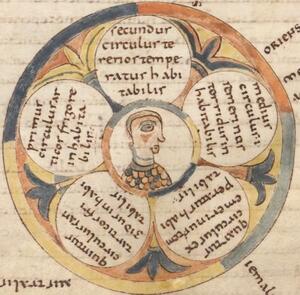
Hiding the Plain Sight: The Vicissitudes of Interfaith-Sex Prosecution in the Medieval Crown of Aragon
1:30pm to 3:00pm
in-person: SOS 250
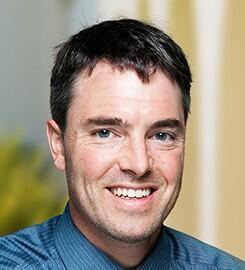
Comparing Premodern Empires: Methodology and Challenges
Thursday, February 24
2pm-3:30pm
in-person: SOS 250 | on-line, please register HERE
Speaker: Laetitia Graslin-Thomé (University of Lorraine, France; USC visiting scholar in Classics, 2021-22)
Respondent: Peter Frankopan (University of Oxford, Professor of Global History, Worcester College)
Modern scholarship sometimes creates divisions between political structures or regions that were closely connected in the past. In order to try to understand why and how to overcome this tendency, this talk will present a research project focusing on the Hellenistic world during the second century. The Ptolemaic and Seleukid empires are often studied separately. However, comparing the two main kingdoms that emerge from Alexander’s conquest opens new perspectives. In the second century BC, after more than a century of existence, both empires were confronted with comparable problems: dynastic divisions, secessionist tendencies, challenges to the ideal of the victorious king. The solutions their kings found were sometimes similar, and sometimes not, because of their geographies, the political structures they inherited, and the variety of reactions of the local populations to the Greco-Macedonian conquest. Comparing how those two kingdoms faced the new challenges of the second century BC is a way to understand their respective organizations better. It also invites us to think further about the way scholars can work on historical questions over vast areas that were interconnected in ancient times and that scholarship tends to divide into pieces.
About the speaker: Laetitia Graslin-Thomé was trained at the Ecole Normale Supérieure (Paris) and Tours University (France), where she studied ancient history, Assyriology and economics. She is now an Associate Professor in ancient history at the Université de Lorraine, Nancy, France. She is currently on leave provided by the Institut Universitaire de France to support a five-year project called “Zeus in Marduk’s shadow: a study of the Hellenistic world in light of Near-Eastern evidence.” She is a visiting scholar at USC for the academic year 2021-2022. Her current work focuses on Hellenistic history, with a special interest in cuneiform sources. She coordinates the “Groupe d’étude des mondes hellénistiques” (GEMH), that gathers scholars working on the Hellenistic period. The group currently prepares a book on the changes experienced by Hellenistic states during the second century BCE. Professor Graslin-Thomé has also organized four international conferences on Hellenistic political history and co-edited five books on this topic. In addition to her interest in Hellenistic political history, she also published a book and several articles on the economic history of ancient Mesopotamia.
About the respondent: Peter Frankopan Stavros is Professor of Global History at Worcester College, University of Oxford and the Niarchos Foundation Director of the Oxford Centre for Byzantine Research, as well as Senior Research Fellow. He works on the history of the Mediterranean, Russia, the Middle East, Persia, Central and Southern Asia, and on relations between Christianity and Islam, focusing on connections and exchange. He is the author of The New Silk Roads: The New Asia and the Remaking of the World Order (2020), The Silk Roads: A New History of the World (2017) as well as The First Crusade: The Call from the East (2012).
Unfortunately the current restrictions prevent us from offering food during this event. However, we are able to provide a boxed lunch to anyone who is attending in person 1:00pm in SOS 250 for pick up to enjoy it outside. Please RSVP to The Center for the Premodern World cpw@usc.edu by Tuesday, February 22 if you would like to order a boxed lunch.
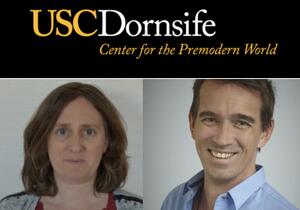
Why the Roman Imperial Accession Speech?
Monday, November 15 1:00 – 2:30pm PDT
in-person: SOS 250 | on-line: please register HERE
Speaker: Brandon Bourgeois (USC, Classics)

The accession speeches of new Roman emperors constituted a species of oratory that was commonplace in imperial transition and the polity’s rhythms of renewal. Despite or perhaps because of their reliability as political phenomena, detailed literary depictions of these addresses are relatively rare in our extant sources. Thus, the very existence of Roman imperial accession speeches in our sources calls for commentary. This talk unpacks the question posed by its title—“Why the Roman imperial accession speech?”—in three primary ways. First, why do depictions of Roman imperial accession speeches survive at all; that is, what historiographical or textual functions do these speeches serve when they happen to appear in our sources? Second, why did new emperors feel compelled to deliver these speeches; more specifically, what political functions did these introductory addresses serve for fledgling emperors? Finally, why study the accession speeches of emperors? In other words, what can we gain from viewing Roman history through the lens of imperial accessions and the speeches by which emperors introduced themselves to various segments of the citizen body?
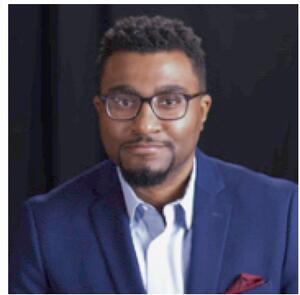
Quackeries born of heathen and hellish folly: Translating polemic across the Mediterranean
Monday, October 25 2:00 – 3:30pm PDT
In-person at SOS 250
On-line via Zoom, please register here.
Speaker: Sergio La Porta Fresno State University
The almost certainly apocryphal exchange of letters between the Byzantine Emperor Leo III (r. 717-741CE) and the Umayyad Caliph ʿUmar b. ʿAbd al-ʿAzīz (r. 717-720CE) has survived in a set of texts that span a range of places, times, and languages. Preserved in Armenian, Arabic, Castilian, and Latin, the different versions of this royal, religious-polemical correspondence not only bear witness to the irreducible connectedness of the societies that produced them, but testify to the enduring reality and relevance of religious disputation in all of them. Although each of these linguistic iterations differs from the other, they share a set of central concerns that revolve around the nature of scripture and its interpretation, and of who has the authority to validate Truth. This talk will untangle the threads that intersect these texts and the complicated questions they raise about textual transmission, enduring relevance, and religious pluralism.
About the speaker: Dr. Sergio La Porta is the Interim Associate Dean of the College of Arts and Humanities and the Haig and Isabel Berberian Professor of Armenian Studies at California State University, Fresno. He received his Ph.D. in Armenian and Near Eastern Studies from Harvard University in 2001. Prior to coming to Fresno, Dr. La Porta taught Armenian and Religious Studies at the Hebrew University of Jerusalem. His research interests include medieval Armenian intellectual and social history, philology, and apocalyptic literature.
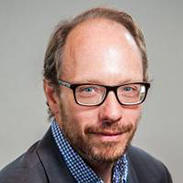
Mobility, Refugees and the law in the Roman World
Wednesday, April 28 5pm PDT
Please register HERE
Speaker: Shigeto KIKUCHI
Associate Professor
Department of History
College of Literature
Aoyama Gakuin University
Description: The Carolingian empire of the eighth and ninth centuries has traditionally been studied as a polity based essentially on the lands over which kings and emperors ruled. However, some excellent recent work has treated the empire as one which was situated in maritime networks of people, goods and information, as a kingdom connected to the outside world by the Mediterranean, the Atlantic Ocean, and the North Sea. The study of these networks are revealing, but little work has been done on the ways that people living in that empire and shaping this network perceived the maritime world(s) around them (and further away) or how they place their empire in the maritime network. This paper offers textual study of images and perceptions of seas and maritime worlds of the eighth and ninth century and pays particular attention to the ways different seas are imagined. It represents part of an ongoing project funded by the Japan Society for the Promotion of Science (JSPS) “Maritime Networks, Islands, and Political Powers in Premodern Europe” (KAKENHI 19H00546, 2019-2024).
About the speaker: Shigeto Kikuchi is Associate Professor in the Department of History, Aoyama Gakuin University, Tokyo/Japan. He is Co-Investigator on the “Maritime Networks, Islands, and Political Powers in Premodern Europe” project and Principal Investigator of another project international funded by JSPS: “The formation and transformation of European legal culture(s): Contextualizing normative sources from the Frankish period (5th-10th century)” (KAKENHI 19KK0014, 2019-2024). His book on missi dominici of Carolingian rulers (Herrschaft, Delegation und Kommunikation in der Karolingerzeit. Untersuchungen zu den Missi dominici (751-888)) is forthcoming.
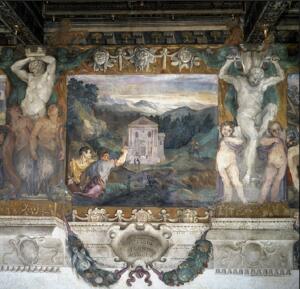
“What can natural archives tell us about the history of Hellenistic Egypt and Babylon”
Claudia Moatti (Professor of Roman History, Paris 8 & USC, Classics and Law)
Wednesday March 10, 11am on Zoom: Please register HERE
If the Roman authorities never issued general rules concerning migration and mobilities, they set up a multitude of specific measures, aiming either to control or to protect certain categories of people. Can we speak for all of that of coherent migration policies? After a brief examination of this question, we will look more precisely at the status of the refugees in Roman law, and at the difference between hospitality and asylum.
Image on the left “Fugitives asking for asylum in Rome (Carracci, Bologna, 1590-1591)”
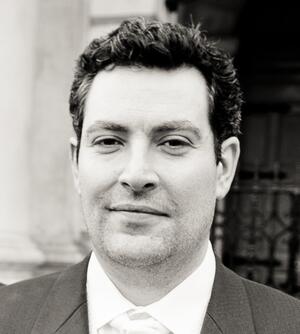
Forging Antiquity: Dares the Phrygian, “First Pagan Historian”
Monday, November 9, 2020
1pm-2:30pm lecture |Register for this virtual event HERE
This paper examines the ways in which the ongoing development of natural archives can be brought to bear to advance and complement existing understandings of human history. Here, we will specifically study the examples of polar ice cores and Ptolemaic Egypt of 305-30 BCE, with additional consideration of Babylon in the same period. Polar ice-cores have long been used to extend our histories of climate-altering volcanic eruptions, which often took place in periods and regions for which little well-dated written evidence is available before the early modern period, e.g. many regions of the tropics. These ice-cores reveal past volcanic events by capturing the atmospheric fallout of anomalous levels of sulphate in annually forming layers of polar ice. But it is only since 2015 that the counting of these layers has been achieved with enough accuracy and precision for the Ancient period to be of use to historians. By reading this new archive in combination with written records, it is possible to first show the impact of major eruptions on the economically critical summer flooding of the Nile and Euphrates, and to trace these economic impacts (as well as potential psychological and religious impacts) on Egyptian and Babylonian societies, in the form of changing commodity prices, sales of land, increased conflict, the issuance of priestly decrees, royal edicts and petitions for relief and redress following failed harvests or acts of theft and violence. With multiple large eruptions occurring in this period, these findings suggest that volcanically induced “hydroclimatic shocks” should be seen as recurrent influences on society, but should also be seen as acting via pre-existing vulnerabilities that reduced social resilience.
About the speaker: Francis Ludlow (Trinity Centre for Environmental Humanities, Department of History, Trinity College, Dublin) Principal Investigator of the IRC Laureate Award-funded project “Climates of Conflict in Ancient Babylonia” (2018-2022) and Co-PI of the U.S. National Science Foundation-funded project “Volcanism, Hydrology and Social Conflict: Lessons from Egypt & Mesopotamia” (2018-2022).
